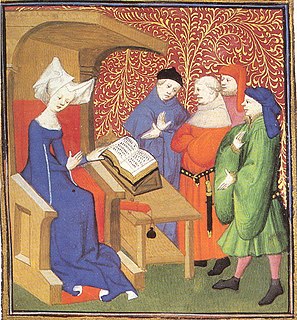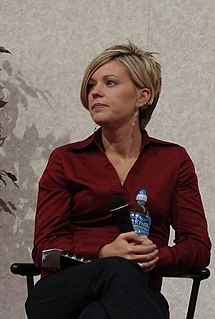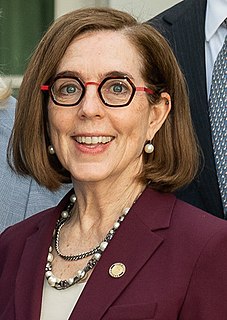A Quote by Christine de Pizan
It is a deed of greater charity to give a bit of bread to the poor in the time of high prices and famine, than a whole loaf in the time of fertility and abundance.
Related Quotes
It is our duty to prefer the service of the poor to everything else and to offer such service as quickly as possible. If a needy person requires medicine or other help during prayer time, do whatever has to be done with peace of mind. Offer the deed to God as your prayer.... Charity is certainly greater than any rule. Moreover, all rules must lead to charity.
You will find out that Charity is a heavy burden to carry, heavier than the kettle of soup and the full basket. But you will keep your gentleness and your smile. It is not enough to give soup and bread. This the rich can do. You are the servant of the poor, always smiling and good-humored. They are your masters, terribly sensitive and exacting master you will see. And the uglier and the dirtier they will be, the more unjust and insulting, the more love you must give them. It is only for your love alone that the poor will forgive you the bread you give to them.
Dâna, charity. There is no higher virtue than charity. The lowest man is he whose hand draws in, in receiving; and he is the highest man whose hand goes out in giving. The hand was made to give always. Give the last bit of bread you have even if you are starving. You will be free in a moment if you starve yourself to death by giving to another. Immediately you will be perfect, you will become God.
"Give us this day our daily bread," by "this day" we mean "at this time," when we either ask for that sufficiency, signifying the whole of our need under the name of bread, which is the outstanding part of it, or for the sacrament of the faithful, which is necessary at this time for attaining not so much this temporal as that eternal happiness.
When we want to help the poor, we usually offer them charity. Most often we use charity to avoid recognizing the problem and finding the solution for it. Charity becomes a way to shrug off our responsibility. But charity is no solution to poverty. Charity only perpetuates poverty by taking the initiative away from the poor. Charity allows us to go ahead with our own lives without worrying about the lives of the poor. Charity appeases our consciences.
Passion is present when a man can distinguish between the wine and the container. Two men see a loaf of bread. One hasn't eaten anything for ten days. The other has eaten five times a day, every day. He sees the shape of the loaf. The other man with his urgent need sees inside into the taste, and into the nourishment the bread could give. Be that hungry, to see within all beings the Friend.


































